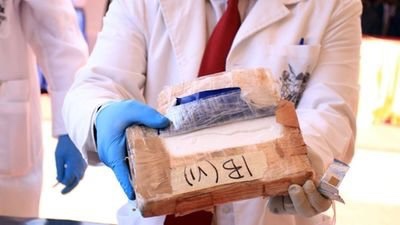SUMMARY
- The pandemic has increased volumes of goods in transit leading to an increase in local and foreign courier firms contracted to execute orders placed on e-commerce platforms.
- Cognizant of the fact that most of the courier firms lack the ability to verify parcel contents and coupled with the operational principles that require confidentiality of contents, traffickers have been taking advantage of the delivery option in a bid to evade arrests.
- It is made more attractive because most parcel owners prefer to pay cash, denying courier firms ability to collect verifiable personal data that could aid traceability and tracking of the drug cartels straight to their dens.
Fast-rising demand for courier services due to the Covid-19 pandemic and runaway e-commerce have seen operators emerge as major conduits for drug trafficking.
The pandemic has increased volumes of goods in transit leading to an increase in local and foreign courier firms contracted to execute orders placed on e-commerce platforms.
Cognizant of the fact that most of the courier firms lack the ability to verify parcel contents and coupled with the operational principles that require confidentiality of contents, traffickers have been taking advantage of the delivery option in a bid to evade arrests.
It is made more attractive because most parcel owners prefer to pay cash, denying courier firms ability to collect verifiable personal data that could aid traceability and tracking of the drug cartels straight to their dens. The problem is rife in both local and foreign courier firms.
The Kenya Revenue Authority (KRA) raised the flag in late October when it impounded a cache of bhang and heroin at the Jomo Kenyatta International Airport (JKIA) in transit to foreign markets.
In a statement, KRA said the officers searching cargo being prepared for loading by an international courier service provider found heroine sourced from Juba, South Sudan ready for onward dispatch to Cambodia while the bhang originated from Kasese in Uganda heading to France.
“Both consignments were separately intercepted while undergoing inspection at the non- intrusive scanners. KRA Customs officers jointly with other officers from the multi-agency team (Mat) at JKIA opened the consignments for 100 percent verification after the scanner showed some concealments,” the KRA said in the statement.
The heroin was concealed in the buttons of dresses while the bhang was wrapped in a black polythene paper concealed in an inner pocket of a Kitenge cloth.
Seizure notices were issued for the two consignments, now under investigation to establish people behind the prohibited drugs racket with the anti-narcotics unit taking up the investigations.
KRA said under the East African Community custom protocols, Kenya, Uganda, South Sudan, Tanzania, Rwanda and Burundi had enhanced collaboration to root out the illicit trade.
“KRA continues to be vigilant at all ports of entry to curb trade of illicit goods through the borders and other transnational economic crimes,” said KRA.
Smuggling and importation of prohibited goods is an offence under the EAC customs management Act 2004.
In the first nine months of last year, Kenya’s narcotics enforcement agency, the Anti-Narcotics Unit conducted over 1,500 raids, seizing over 56.8kgs of heroin, 7.9 tonnes of cannabis, as well as 3.6kgs of cocaine, and over $177,000 in cash and property. Most of these seizures were done in the coastal city of Mombasa, with the drugs being traced to Tanzania, investigation sources said.
Porous borders
According to Washington, cocaine enters Kenya primarily via direct flights from South America to Ethiopia with subsequent land transport to Kenya, through the porous northern borders. This year alone, four police officers based in the northern frontier have been arrested using government vehicles transporting narcotics, lending credence to these assertions by the Americans.
“Kenya has seen an increase in cocaine investigations over the past year. Limited maritime enforcement capabilities on Kenya’s Indian Ocean coastline hampers drug interdiction,” the US Bureau for International Narcotics and Law Enforcement Affairs report read.
The US admitted that Kenya’s law enforcement helped in 2019 to reduce the supply of heroin, cocaine, marijuana and other drugs entering the country through increased targeting of traffickers.
“By targeting drug trafficking organisations instead of individual traffickers, Kenya can more effectively prevent large shipments of drugs from entering or transiting Kenya. Multi-kilogramme seizures of heroin are becoming more frequent within Kenya, primarily due to the increased diligence and capability of the Kenya Police Service,” the report noted.
There's no story that cannot be told. We cover the stories that others don't want to be told, we bring you all the news you need. If you have tips, exposes or any story you need to be told bluntly and all queries write to us [email protected] also find us on Telegram

